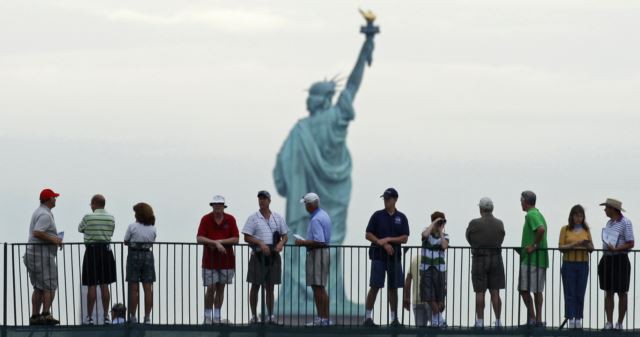
Not long ago, National Geographic made headlines with its “Changing Face of America” article. The story explained that America was becoming more comfortable with interracial relationships, and as a result, the future U.S. population would be made up of a group of people with features from multiple races. But a new study challenges this hypothesis and suggests that this “mixed race future” is already here — we just never realized it.
For the study, researchers analyzed the DNA of more than 160,000 Americans who had offered their saliva as part of the “23andMe” human genetics project. The findings, published in The American Journal of Human Genetics, suggest that there is quite a large difference in the race that people identify with and what they actually are on a genetic level.
The results showed that, as expected, people tended to identify with the race that made up the majority of their background. However, for many, this self-identification was not completely accurate. According to the researchers’ estimates, as many as six million Americans who identify as white from a European background carry African ancestry, and as many as five million self-described European white Americans have Native American ancestry.
“Our study not only reveals the historical underpinnings of regional differences in genetic ancestry but also sheds light on the complex relationships between genetic ancestry and self-identified race and ethnicity,” Dr. Katarzyna Bryc, a researcher with 23andMe and Harvard Medical School and the study’s lead author, said in a press release.
As shown in the graphs below, the highest concentration of African DNA in both blacks and whites was located in the southern American states.


The researchers believe that this African lineage in white Americans may have been lost or forgotten purposely, due to the social stigmas associated with America’s “one-drop” rule. Under the Jim Crow segregation rules of the South, one drop of Native American or African blood meant an individual was classified as “colored,” and with this classification came many restrictions. The researchers speculate that in an attempt to rise above the prejudice and overcome social ladder boundaries, many mixed race people remained silent on their African and Native American heritage in order to fit into white communities.
“These findings suggest that many individuals with partial African and Native American ancestry have ‘passed’ into the white community, thereby undermining the use of cultural labels that separate individuals into discrete, non-overlapping groups,” Bryc said.
Similar results have been found in the past, with one report published by The Guardian stating that one out of every three self-identifying white Americans have between two to 20 percent African genes. Other research indicates that, because of the history of sexual violence perpetrated against slaves in the U.S., the average black American has only 73 percent African DNA.
The number of people reporting a mixed race background grew by 32 percent between 2000 and 2010, but according to CNN, this doesn’t necessarily mean that there are more mixed race people; rather, there may simply be more people identifying with their blended heritage.
Another interesting finding of the study was evidence of immigration patterns in the DNA of the volunteers. For example, Scandinavian ancestry was found heaviest in white Americans living in Minnesota and the Dakotas. This is in line with the large numbers of Scandinavian immigrants who resettled in these regions during the late 19th century due to mounting economic pressure and overpopulation in their homelands.
